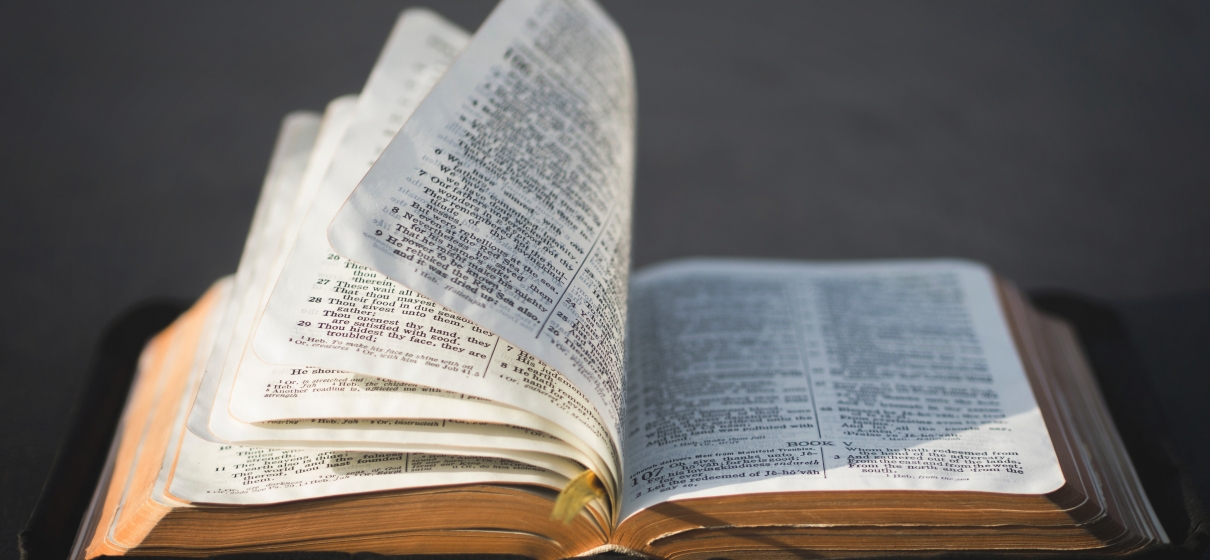Four Truths About the Minor Prophets
This summer we begin a series that walks through the books of the Bible known as the minor prophets. The Teaching Team won’t go through every verse in every book. We will do more of an overview. Our hope is to uncover the essential message of each minor prophet as it relates to one of its major themes: the love of God.
Some believers have gone their entire lives without reading these books. Maybe it’s because the minor prophets feel confusing, obscure, or simply too far removed from the New Testament. Others who have read them often have done so in a piecemeal format – reading a verse here or a brief passage there. Still, there are others who think these books are full of prophecies for the modern world and thus, must be read with a newspaper in hand. As far as the minor prophets go, misconceptions can easily abound.
So, in order to reduce some confusion and help us maximize our time in this series, here are four truths about the minor prophets that you might not have known.
They’re not called the minor prophets because they’re insignificant.
There are four major prophets in the Old Testament: Isaiah, Jeremiah, Ezekiel, and Daniel. They are called major because of their length. Fun fact: these books are also ordered together in our English Bibles with only Lamentations stuck in the middle. Thus, the minor prophets, twelve books in all, are named so because they are comparatively short, not because they are of lesser importance.
The major and minor prophets are collectively known in the Hebrew Bible as the Latter Prophets (or Writing Prophets, because they authored their own works). This is because they came later in Israel’s history, as opposed to the earlier books of Joshua, Judges, 1st and 2nd Samuel, 1st and 2nd Kings. These books are referred to as the Former Prophets.
The prophetic books aren’t all prophecy.
To read any of the minor prophets is to find books composed of different genres of literature in addition to prophetic material. These writings also contain genres such as narrative, apocalyptic, wisdom, poetry, songs, and even sermons. This means that in interpreting these books well we must have different rules for reading different styles of writing. That may sound challenging but it’s worth it because it allows us to better understand the books as they were originally given.
For the record, if this kind of thing stresses you out, I highly recommend taking Clear Creek’s class “How To Study the Bible” in the fall. It will give you the tools and training to engage and interpret the different literary genres that we encounter in studying the Bible.
The prophecies in the minor prophets aren’t always about our future.
One of the most common misconceptions about the prophetic books is that the prophecies therein are entirely about the days and times still awaiting modern folks. We need to remember that those prophecies were meant for the original audience thousands of years ago. Many of those prophecies, while yet to be fulfilled in the future for them, actually came to pass centuries ago for us. Scholars Gordon Fee and Douglas Stuart point out in their co-authored book, How to Read the Bible for All Its Worth (page 166),that less than 2 percent of Old Testament prophecy has to do with Jesus, less than 5 percent deal with the New Covenant age (e.g., the age we currently reside), and less than 1 percent concerns events yet to come.
Prophets didn’t just spend time foretelling the future.
It is true that part of a prophet’s role was to foretell the future. The most popular Hebrew name for prophets was nabi which meant “called” and very likely was tied to the fact that these individuals were “called” by God and also “called out” to the people on God’s behalf. But prophets had additional functions central to their role. One helpful way to see this is in the difference between forthtelling and foretelling.
We rightfully think of the prophets as foretellers of the future. However, the prophets spent a lot of their time forthtelling. As scholar Sidney Greidanus notes, the prophets “uncover and point out the idolatry, the corruption, the injustice that exists under the veneer of religiosity, and they call for a radical change” in God’s people (The Modern Preacher and the Ancient Text, 230). Essentially, the prophets are God’s covenant enforcement mediators for ancient Israel. Much of reading the minor prophets is to see text after text not of a prophet predicting the future but calling Israel to be faithful to God’s ways in the present.
When you better understand the role of the prophets and the messages they gave in Scripture, the minor prophets can take on a whole new meaning for followers of Jesus. We just have to take the initiative to study these books. Many Christians are amazed at how texts written to God’s original covenant people can feel so timely and appropriate for for Christ’s New Covenant family today.
Not only is that my hope as we begin our series in the minor prophets but that we would be awash in amazement and gratitude for a God who not only redeems his people but cares how they live and love in the world in which he has placed them.
- Art, Antibiotics, and Astronauts: God’s Gifts of Common Grace - July 26, 2022
- Roe v. Wade: What Is Next for the Church? - June 29, 2022
- Is it Okay to Doubt God? - January 11, 2022

